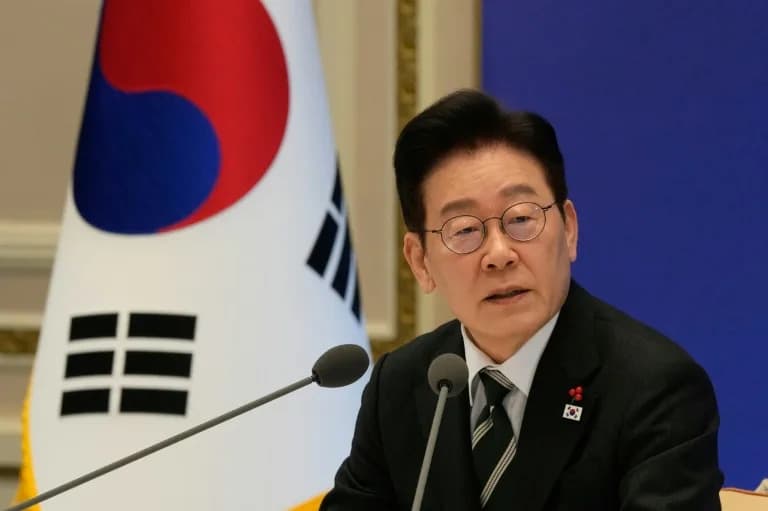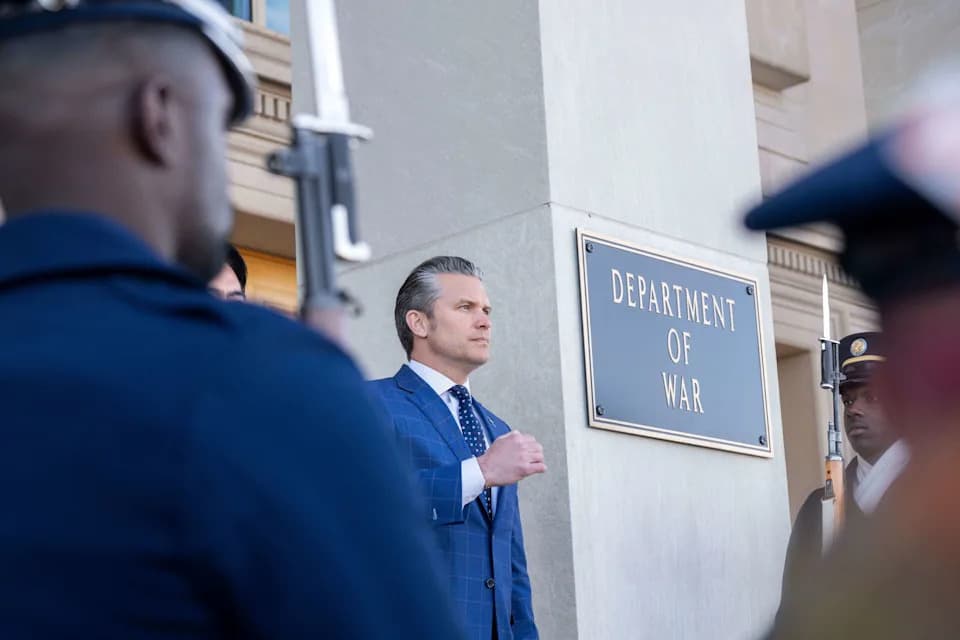U.S. defense official Pete Hegseth praised South Korea's plan to raise defense spending and assume a larger role in deterring North Korean aggression, calling Seoul's commitment greatly encouraged. President Lee has requested an 8.2% increase in next year’s defense budget to modernize weapons and reduce reliance on outside support. Hegseth highlighted ship-repair cooperation and readiness efforts, while officials reiterated that South Korea does not possess or seek nuclear weapons. The remarks came amid reports that North Korea fired roughly 10 artillery rounds toward western waters.
U.S. Official Pete Hegseth Praises South Korea’s Plan to Boost Defense Spending and Lead Deterrence

Hegseth welcomes Seoul's pledge to strengthen conventional defenses
In Seoul on Tuesday, U.S. defense official Pete Hegseth praised South Korea's announcement that it will raise defense spending and take a larger role in deterring aggression from North Korea. Hegseth spoke to reporters after annual security talks with South Korean Defense Minister Ahn Gyu-back, calling Seoul's commitment "greatly encouraged."
Washington has long urged Seoul to strengthen its conventional forces so the United States can focus more strategic attention elsewhere in the Indo-Pacific. Hegseth said the two allies agreed South Korea's increased investments will bolster its ability to lead conventional deterrence against the North.
Budget boost and modernization
South Korean President Lee Jae Myung told parliament he will ask lawmakers to approve an 8.2% increase in next year’s defense budget. The president said the increase will help modernize weapons systems and reduce the military's dependence on external support.
Practical cooperation and readiness
Hegseth highlighted expanded defense cooperation, including efforts to repair and maintain U.S. warships in South Korea. He said these activities leverage South Korea's world-class shipbuilding industry and help ensure allied capabilities remain ready to respond to crises.
We face a dangerous security environment, but our alliance is stronger than ever, Hegseth said, stressing shared resolve and readiness.
Regional contingencies and deterrence
While emphasizing that the South Korea–U.S. alliance is primarily focused on deterring North Korean aggression, Hegseth acknowledged the need to consider other regional contingencies. He reiterated the allies' commitment to extended deterrence and noted ongoing discussions about aligning U.S. nuclear posture with South Korea's conventional forces, without indicating any change in Seoul's non-nuclear status.
Defense Minister Ahn reiterated that South Korea does not have nuclear weapons and denied speculation that Seoul is pursuing its own nuclear program or seeking redeployment of U.S. tactical nuclear weapons withdrawn in the 1990s.
Recent tensions
South Korea's Joint Chiefs of Staff reported that North Korea test-fired roughly 10 rounds of artillery toward western waters on Monday. That firing occurred shortly before Hegseth and Minister Ahn visited an inter-Korean border village at the start of Hegseth's two-day visit. Hegseth also visited the Demilitarized Zone earlier in the week.
The discussions in Seoul underscore continued cooperation between Washington and Seoul as they seek to strengthen deterrence and readiness across a region facing multiple security challenges.
Help us improve.




























